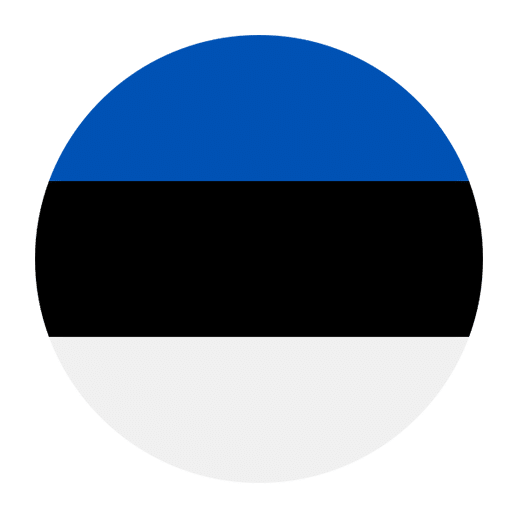When learning a new language, one of the most practical and enjoyable aspects is expanding your vocabulary in areas that are useful in everyday life. One such area is beverages. Whether you’re dining out, visiting a café, or just talking about your favorite drinks with friends, knowing the names of different beverages can significantly enhance your communication skills. In this article, we’ll explore some common Estonian words for various types of beverages, from everyday drinks to specialty concoctions.
Everyday Beverages
Starting with the basics, everyday beverages are the drinks you might consume daily. These include water, milk, tea, and coffee. Here are some essential Estonian words for these commonplace beverages:
– **Vesi**: This means water in Estonian. It’s one of the most fundamental words you’ll need, especially when dining out.
– **Piim**: The word for milk. Milk is often served with coffee or tea in Estonia, so this word can be quite handy.
– **Tee**: This translates to tea. Estonia has a rich tradition of tea drinking, and you’ll find a variety of teas available.
– **Kohv**: This means coffee. Coffee culture is strong in Estonia, with numerous cafés serving everything from simple black coffee to elaborate espresso drinks.
Soft Drinks and Juices
Soft drinks and juices are popular choices, especially among younger people and during social gatherings. Here are some common terms:
– **Limonaad**: This word is used for lemonade or any carbonated soft drink. It’s a versatile term that can cover a range of fizzy beverages.
– **Mahl**: This means juice. You can pair this word with various fruit names to specify the type of juice, such as õunamahl for apple juice or apelsinimahl for orange juice.
– **Koolajook**: This is the term for cola drink. It’s a straightforward way to ask for a cola-flavored soft drink.
Alcoholic Beverages
For those who enjoy alcoholic drinks, knowing the names of these beverages in Estonian can be particularly useful. Estonia has a rich tradition of both local and international alcoholic beverages.
– **Õlu**: This word means beer. Estonia has a thriving craft beer scene, so this is a must-know term.
– **Vein**: This is the word for wine. Whether you prefer red (punane vein) or white (valge vein), knowing this term will help you navigate wine lists.
– **Viin**: This translates to vodka. Vodka is a popular spirit in Estonia, often enjoyed in various forms, from shots to cocktails.
– **Siider**: This means cider. Cider is a popular alternative to beer and comes in a variety of flavors.
– **Konjak**: This is the term for cognac or brandy, a common after-dinner drink.
Hot Beverages
Estonia’s cold climate makes hot beverages a staple, especially during the winter months. Here are some terms for popular hot drinks:
– **Kakao**: This word means hot chocolate or cocoa. It’s a comforting drink often enjoyed during the colder months.
– **Taimetee**: This translates to herbal tea. Herbal teas are widely consumed for both their flavor and health benefits.
– **Glögi**: This is the word for mulled wine, a spiced wine drink that is especially popular during the holiday season.
Specialty Drinks
Every culture has its unique specialty drinks, and Estonia is no exception. These beverages are often tied to traditions and can offer a deeper understanding of Estonian culture.
– **Kali**: This is a traditional Estonian fermented beverage made from bread. It’s slightly alcoholic and has a unique flavor that’s worth trying.
– **Vana Tallinn**: This is a famous Estonian liqueur, known for its rich and sweet flavor. It’s often enjoyed as a dessert drink or added to coffee.
– **Mead**: Known as mesiõlu in Estonian, this is a honey-based alcoholic beverage that has historical significance in Estonian culture.
Dairy-Based Drinks
Dairy plays a significant role in Estonian cuisine, and there are several dairy-based beverages that you might encounter.
– **Keefir**: This word means kefir, a fermented milk drink that is both nutritious and refreshing.
– **Jogurtijook**: This translates to yogurt drink. These are often flavored and can be a healthy snack or breakfast option.
Beverage-Related Phrases
Knowing the names of beverages is essential, but it’s also helpful to know some common phrases related to ordering and discussing drinks. Here are a few useful ones:
– **Kas teil on…**: This means Do you have… and can be followed by the name of the beverage you’re asking for. For example, “Kas teil on õlu?” means “Do you have beer?”
– **Palun üks…**: This translates to One…please. You can use this to order a drink, such as “Palun üks kohv” for “One coffee, please.”
– **Kas ma saaksin…**: This means Can I get… and is another way to ask for a beverage. For example, “Kas ma saaksin vee?” means “Can I get water?”
– **Kuidas teed valmistatakse?**: This translates to How is the tea prepared? and can be useful if you have specific preferences or dietary restrictions.
– **Kas see on alkoholivaba?**: This means Is it non-alcoholic? and can be helpful if you’re avoiding alcohol.
Regional and Seasonal Beverages
Estonia’s diverse regions and changing seasons also influence the types of beverages that are popular at different times of the year.
– **Suvejoogid**: This means summer drinks. During the summer, lighter and more refreshing beverages like lemonade (limonaad) and iced tea (jäätee) are popular.
– **Talvejoogid**: This translates to winter drinks. In the colder months, hot beverages like mulled wine (glögi) and hot chocolate (kakao) are more commonly consumed.
– **Regioonilised joogid**: This means regional drinks. Different parts of Estonia may have their own specialty beverages, often made with local ingredients.
Beverages in Social Contexts
Understanding the social context in which beverages are consumed can also be helpful. In Estonia, beverages often play a role in social gatherings, celebrations, and even business meetings.
– **Terviseks!**: This means Cheers! and is a common toast when drinking with others.
– **Kohvipaus**: This translates to coffee break, a common practice in workplaces where colleagues gather to take a short break and enjoy a cup of coffee.
– **Õhtusöögi jook**: This means dinner drink. It’s common to have a specific beverage, often wine or beer, that accompanies the evening meal.
Beverages for Special Occasions
Certain beverages are reserved for special occasions and holidays in Estonia. Knowing these can help you better understand and participate in Estonian traditions.
– **Šampanja**: This is the word for champagne. It’s often used in celebrations like New Year’s Eve and weddings.
– **Jõulujook**: This translates to Christmas drink. During the holiday season, you might encounter special beverages like spiced mulled wine (glögi) and Christmas beers (jõuluõlu).
– **Pidujoogid**: This means party drinks. These can range from various cocktails (kokteilid) to punch (punsš), depending on the occasion.
Beverages for Health and Wellness
In recent years, there has been a growing interest in health and wellness beverages in Estonia. These drinks are often consumed for their health benefits.
– **Taimetee**: As mentioned earlier, this means herbal tea. Many people drink herbal teas for their various health benefits, such as relaxation or digestion aid.
– **Värske mahl**: This translates to fresh juice. Freshly squeezed juices, often made from fruits and vegetables, are popular for their nutritional value.
– **Smuutit**: This means smoothie. These blended drinks, often made with fruits, vegetables, and yogurt, are a popular choice for a healthy snack or breakfast.
Conclusion
Expanding your vocabulary to include common beverage names in Estonian can greatly enhance your ability to navigate daily life and social situations in Estonia. From everyday drinks like water (vesi) and coffee (kohv) to specialty beverages like mulled wine (glögi) and traditional fermented drinks (kali), knowing these terms can make your experiences richer and more enjoyable. Additionally, understanding phrases related to ordering and discussing beverages can improve your communication skills and help you feel more confident in various settings.
So next time you find yourself in an Estonian café, restaurant, or social gathering, you’ll be well-prepared to order your favorite drink and maybe even discover some new ones. Cheers, or as they say in Estonia, Terviseks!

